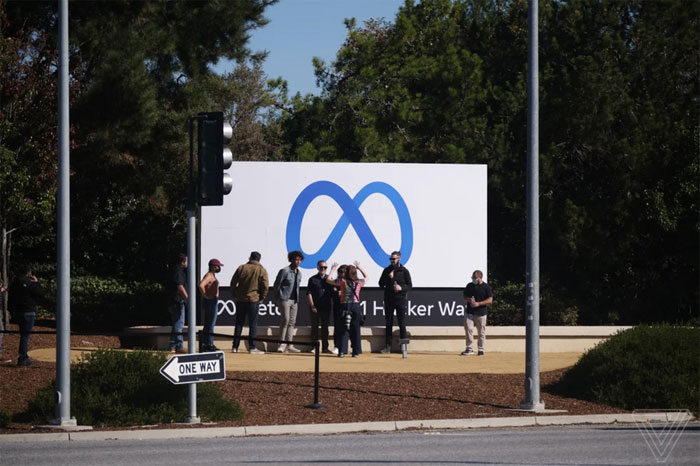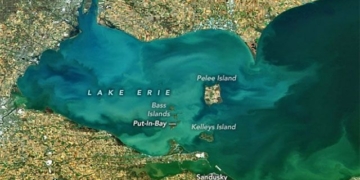CEO Mark Zuckerberg shared his vision for the future, focusing on Facebook’s metaverse, amid significant scandals facing the social media platform.
During the Connect event held at midnight on October 29, Facebook introduced the first images of its self-developed metaverse named Horizon Home. Mark Zuckerberg stated that Horizon is not just a personal project. Facebook plans to launch a product for businesses called Horizon Workroom next year and leverage the NFT trend with Spark AR.
Facebook Changes Company Name, Not Social Media Name
The CEO of Facebook also announced that starting today, the company will be renamed Meta. The new company will consist of two main divisions: one for existing applications and services, and another for future plans.

At the start of the event, CEO Mark Zuckerberg revealed some of the first images of Horizon.
“Currently, we are seen as a social media company, but in reality, we are a company built to connect people,” Mark Zuckerberg stated. The CEO believes that the Facebook brand has been too closely associated with one product, which may be a barrier to developing future projects.
At the beginning of the event, CEO Mark Zuckerberg unveiled some of the first images of Horizon. This resembles a virtual space, featuring characters that look human with emotions and mouth movements changing based on speech. Additionally, calls and messages are also displayed on a virtual screen.
Facebook’s video description shows that users can “meet” in Horizon through various spaces, from concerts, parks, and offices to the International Space Station (ISS). Zuckerberg affirmed that Horizon’s privacy has been considered since the early development days.
The virtual space of Facebook also supports various applications for arranging objects, communicating, watching movies, or playing games together. There are three main spaces: Horizon Home, Horizon Worlds, and Horizon Workrooms.
With Spark AR, Facebook aims to bring real-life activities into the virtual world. This world will feature items resembling real life, and transactions can be based on blockchain technology. Mark Zuckerberg illustrated this with an image of himself in the virtual world, dressed in a surfing outfit with his face covered in sunscreen.

Mark Zuckerberg illustrates himself in the virtual world.
Horizon will also support an app store for releasing and selling items, games, or music in the virtual space. The company is also focusing on Horizon’s gaming activities, with popular games like Chinese chess or table tennis. A virtual reality surfing game will also be introduced, where players can challenge friends to participate.
Facebook revealed that the game GTA San Andreas will appear on the Oculus Quest 2 virtual reality headset. Other games are also being developed for this headset, set to launch by the end of the year and into 2022.
Mark Zuckerberg also revealed ambitions to enter the personal training market with Horizon. “It’s like cycling with a Peloton bike, but you can do much more, from boxing, fencing to dancing,” the Facebook CEO stated.

Mark Zuckerberg demonstrates fencing in the virtual world.
Mark Zuckerberg expressed a desire to make working from home a trend in the virtual world. He believes that the metaverse can help colleagues interact with each other “as if they are in the same place,” while dressing comfortably at home.
When you arrive at the office, instead of sitting in front of a computer screen, Facebook’s “virtual universe” will display information panels in front of you. Users will use finger gestures to interact and control. These virtual “screens” can be displayed anywhere. Different individuals can also gather in a virtual room to chat.
Facebook representatives also shared about the educational benefits of the virtual universe. When learning about planets, users can swipe to interact, “bringing” the planets closer to learn detailed information about them, which can then be shared on social media. Exploring historical sites, outer space, practicing medicine, or studying marine life can also be easily interacted with in Horizon.
Not only serving users, Facebook’s virtual universe promises to be a creative space for designers and celebrities. They can create their own spaces, showcasing personal styles in Horizon. Celebrities can also host fan meetings or sell clothing and accessories within Horizon.
With the Interaction SDK, users can interact with Facebook’s virtual universe more realistically through gestures, grabbing objects. This platform also supports voice control and search through the Voice SDK. Facebook representatives promised to deliver a better mixed reality experience in Horizon in the future.
Can the “Cicada Shedding” Strategy Save Facebook?
“Metaverse” is a term borrowed from science fiction, referring to a future version of the Internet. There, people access technology through VR and AR instead of computers or smartphones. In July, CEO Mark Zuckerberg publicly declared his intention to transform Facebook into a virtual universe.

The sign outside Facebook’s campus has been changed to the Meta symbol instead of the Like button as before.
Facebook’s sudden launch of the Metaverse and its name change indicates an effort to salvage the company’s image after various ongoing controversies. Anne Olderog, a senior leader at the consulting firm Vivaldi with 20 years of experience in brand strategy, believes Facebook is trying to shift the narrative from its current issues to the metaverse.
“And really, no one understands the metaverse, which is also a smart move,” Olderog assessed.
Thus, instead of the media continuing to focus on Facebook’s current scandals, they now have something new to cover with the Metaverse that Mark Zuckerberg just introduced. At the same time, other current products of the company, such as Instagram and WhatsApp, will now have the parent company Meta, no longer influenced by the infamous Facebook name.
In a conversation with Business Insider, Eric Schiffer, CEO of the media and technology company The Patriarch Organization, believes Facebook will continue to face its troubles. Nevertheless, the platform still exists due to its resources, political understanding, and lobbying power.
“It’s not a ‘kiss of death’ for Mark Zuckerberg; it’s a smart move to pivot towards the metaverse and erase part of the stain from the past. It also opens up a new space with the potential to dominate in the coming decades,” Schiffer added.


















































